Speakers
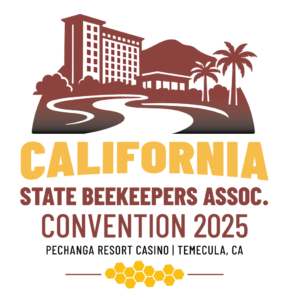

Dr. Sammy Ramsey
University of Colorado Boulder, Ramsey Research Foundation
Recent Findings in the Boulder Bee Lab | Tuesday, Nov 18, 9:30 – 10:30 AM
Dr. Ramsey received his B.S. in entomology from Cornell University and his Ph.D. in entomology from the University of Maryland College Park. He completed his post-doctoral training with Dr. Jay Evans, Steve Cook, and Daniel Sonenshine at USDA-ARS Bee Research Laboratory and now serves as Endowed Professor of Entomology at CU Boulder’s BioFrontiers Institute and the Ecology and Evolutionary Biology Department.
Featured on Hulu’s Docuseries: Your Attention Please as well as in the Washington Post, on NPR, CNN, Wired, CBS This Morning, Khan Academy, Seeker, The Today Show and several local news segments, Ramsey is celebrated as an engaging science communicator. He uses this talent to make science more accessible to a broad audience.
His nonprofit, The Ramsey Research Foundation, works to remove barriers that slow the progress of and decrease access to science by developing novel pathways for scientific funding and by removing paywalls that keep the public from engaging with published scientific work.
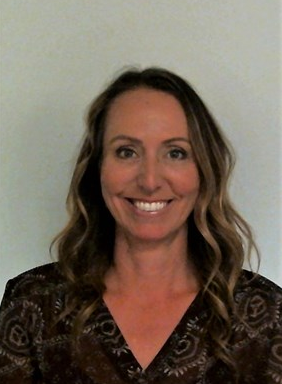
Jennifer Berger
CA Department of Agriculture, Apiary Protection Program, Senior Environmental Scientist Specialist, State Apiarist
CDFA Update – Apiary Board & Border Stations | Tuesday, Nov 18, 11 – 11:15 AM
Jennifer has been with CDFA as the Senior Environmental Scientist for the Apiary Protection Program since the end of 2022. Prior to her time with the state, she worked for Sacramento and Butte County Agricultural Commissioner’s offices as an Agricultural Biologist/Weights and Measures Inspector beginning in 2007. Her time was primarily spent in Apiary and as an Agricultural K-9 Handler, though she spent time in all regulatory work in the county. She holds a BS in Agricultural Science from California State University, Chico.
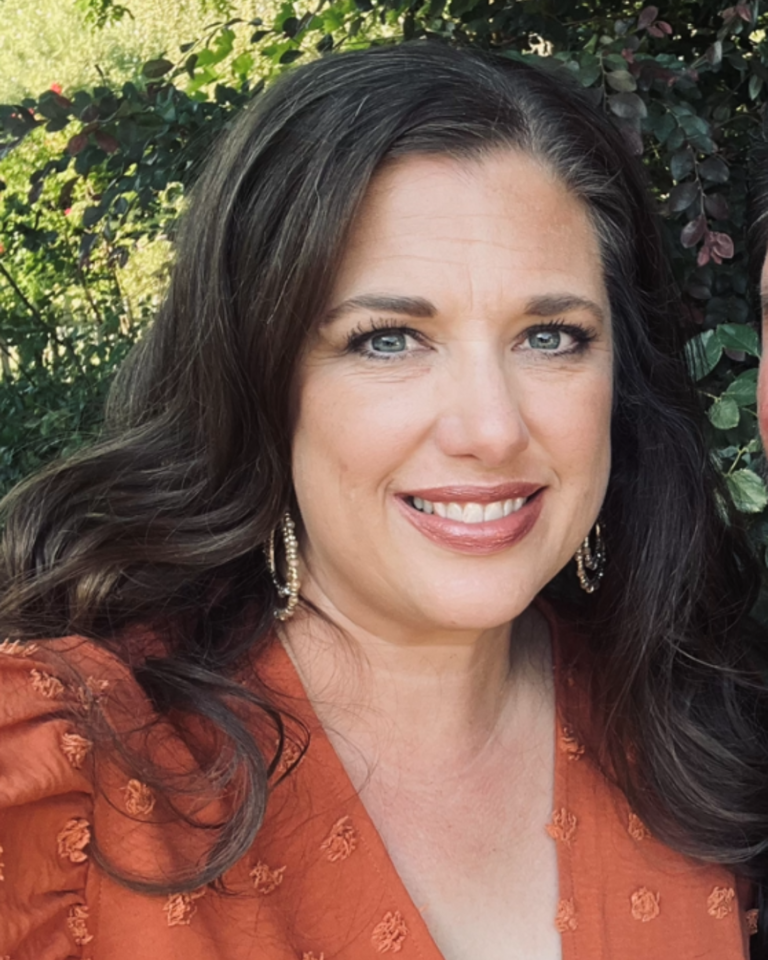
Marcie Skelton
Glenn County Ag Commissioner, California Agricultural Commissioners and Sealers Association
California Apiary Regulatory Update | Tuesday, Nov 18, 11:15 – 11:30 AM
Marcie Skelton has been the Glenn County Agricultural Commissioner/Sealer of Weights & Measures since 2015. Before this, she worked as an Agricultural Biologist/Weights and Measures Inspector for the Tehama County Department of Agriculture for 11 years. Marcie began her career as a high school agriculture science instructor and FFA Advisor in Shasta County, a role she had for three years. She holds a BS in Agriculture Science from Chico State University.
Growing up on her family’s cattle ranch in eastern Tehama County, Marcie developed a strong connection to agriculture and was a member of 4-H and FFA. She is also a dedicated 4-H volunteer, serving as a club and project leader. Marcie and her husband have three children, two in college and the youngest in high school.
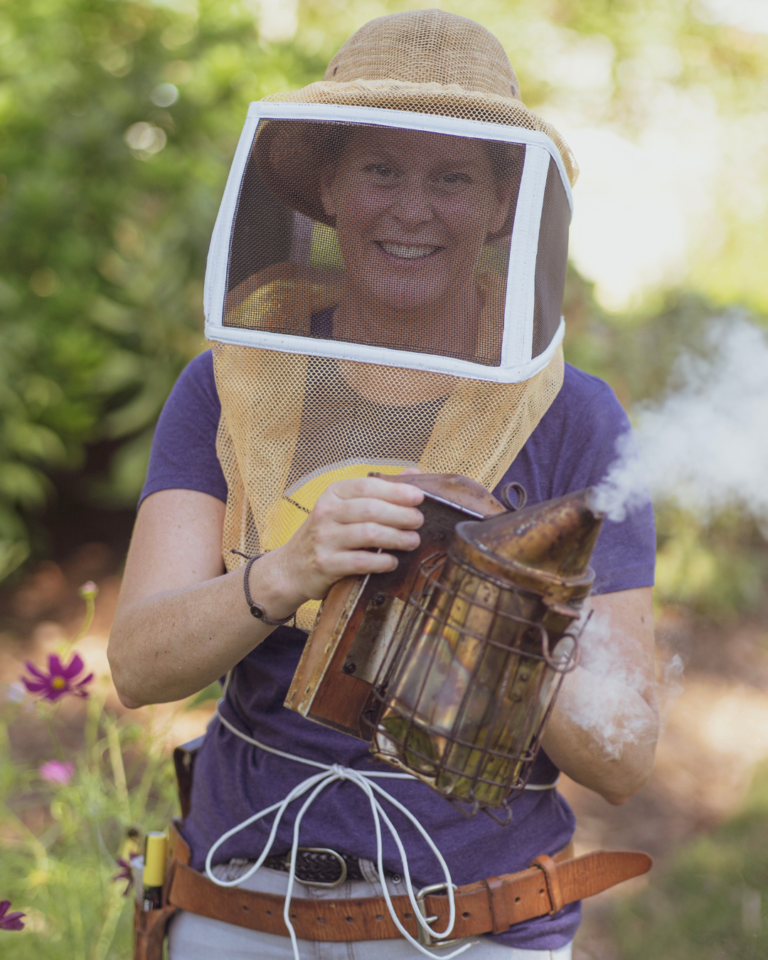
Anne Marie Fauvel
Program Director, American Honey Producers Association
AHPA Update | Tuesday, Nov 18, 11:45 – Noon
Anne Marie is the Program Director for American Honey Producers Association (AHPA), charged with coordinating AHPA’s communication and activities surrounding their political agenda and lobbying efforts. Anne Marie also owns and operates Honey Bee Vitality, LLC, where she coordinates large field studies, in real-world commercial operations through scientific collaboration with academic institutions and industry, acting as a third party, unbiased data collection contractor.
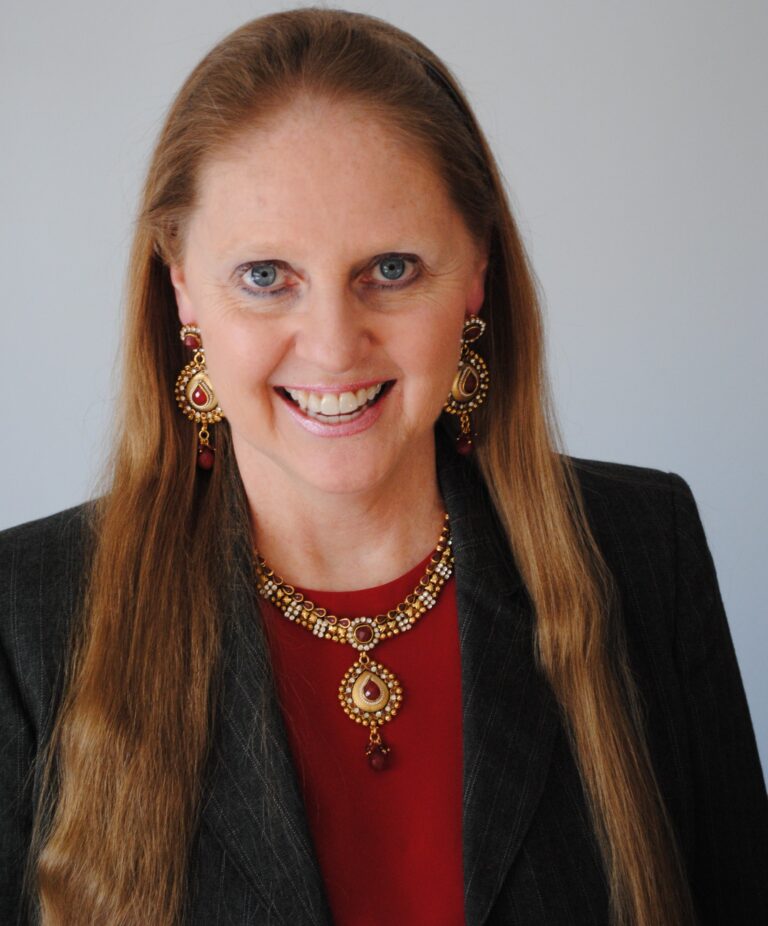
Debbie Seib
Vice President, American Beekeeping Federation
ABF and Our Industry | Tuesday, Nov 18, 11:30 – 11:45 AM
I began keeping bees over 35 years ago. Along with my husband Mike, we are a Mann Lake dealer and host a Newbie Day each May. From 2011 until 2023, I served as the Treasurer for The Beekeepers of Indiana completing the documentation to get our 501(c)(3) status.
I’ve been the American Beekeeping Federation State Delegate chair for the past six years. I served as the ABF SIG leader for the Producers and Packers from 2020 through 2023 and for the past year, I’ve been serving as our Executive Director as we transitioned to a self-managed board.
In 2024, I was elected as the Vice-President and Legislative Chair for the American Beekeeping Federation.
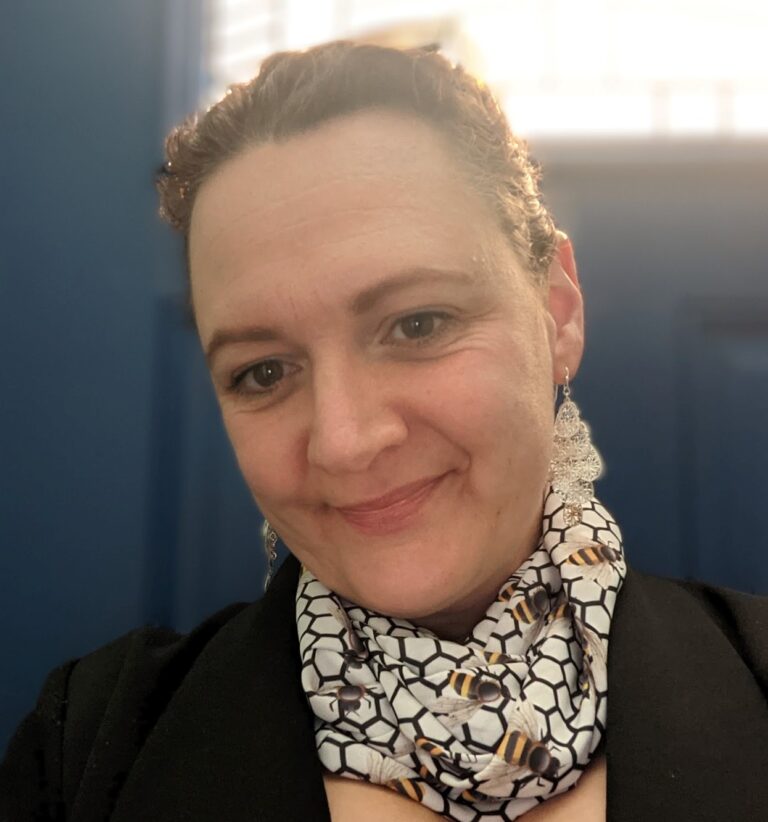
Dr. Elina Nino
Extension Specialist for Apiculture with UC ANR UCCE located in the Department of Entomology and Nematology at UC Davis.
Update from the E. L. Niño Bee Lab | Tuesday, Nov 18, 1:30 – 2:15 PM
Elina L. Niño is an Extension Specialist for Apiculture with UC ANR UCCE located in the Department of Entomology and Nematology at UC Davis. Dr. Niño’s team supports a number of stakeholder groups through educational activities and by offering laboratory and field services. Dr. Niño’s team utilizes basic and applied approaches to understanding and improving honey bee health. Ongoing projects include stock and miticide evaluation, benefits of nutritional supplements such as probiotics and phytochemicals, and evaluating pollination management practices to support honey bee health. To learn more about the research and extension/outreach efforts please visit https://elninobeelab.ucdavis.edu/ , https://cambp.ucdavis.edu/ and https://beehealthhub.ucdavis.edu/
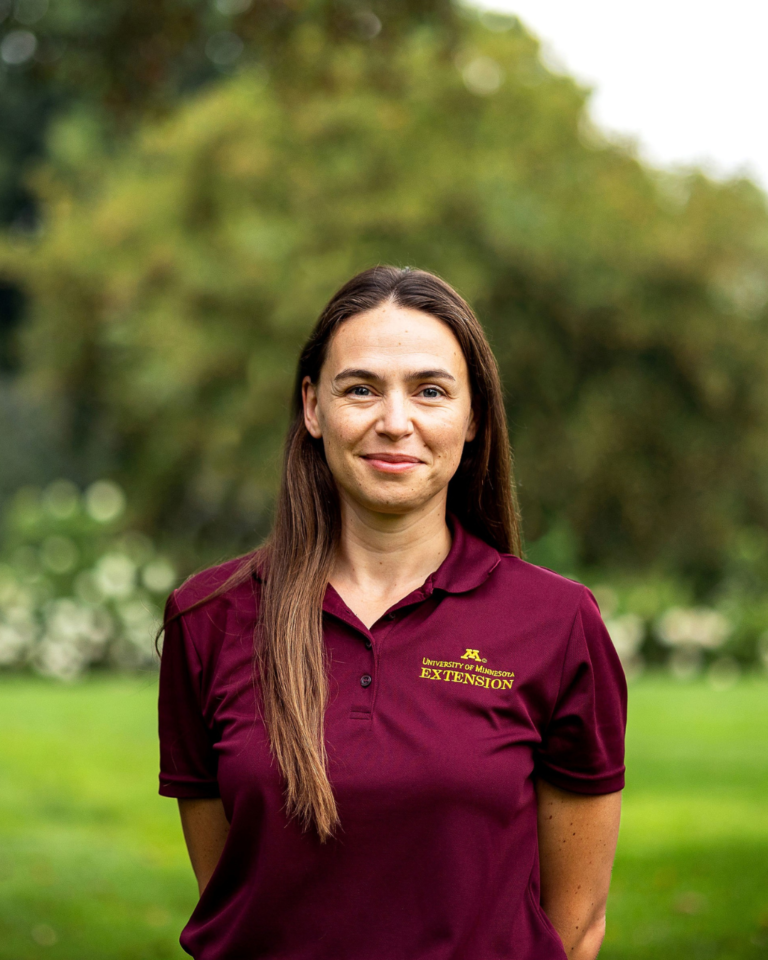
Dr. Katie Lee
University of Minnesota Apiculture Extension Educator
Requeening Based on Colony Health | Tuesday, Nov 18, 3:15 – 4 PM
Katie Lee is the University of Minnesota Apiculture Extension Educator and MN Co-coordinator for the Sustainable Agriculture Research and Education (SARE) grant program. Katie received a MS and PhD specializing in honey bees. She traveled the U.S. assessing beekeeper colonies, and kept >200 colonies for a project on the benefits of pollinator plantings. Katie works with the University of Minnesota Bee Lab to develop beekeeper education and conduct practical research. For SARE, she helps connect people with SARE grants and educational resources
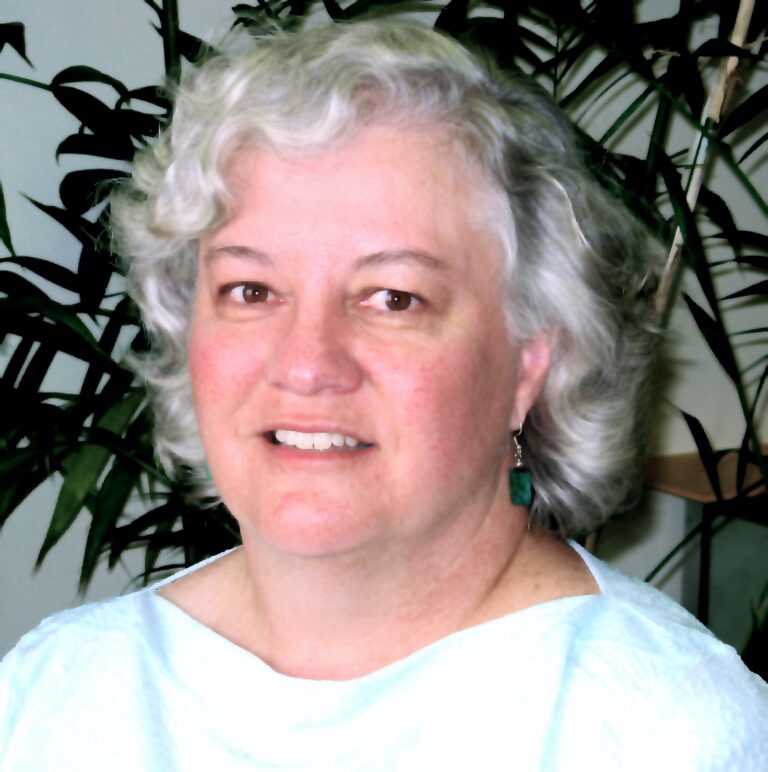
Dr. Diana Cox-Foster
Research Leader and Entomologist, USDA-ARS Pollinating Insects Research Unit, Logan, Utah
Pathogen Impacts on Honey Bees and Other Bee Species | Wednesday, Nov 19, 9 – 9:45 AM
Diana Cox-Foster is a Research Leader and Entomologist at USDA-ARS Pollinating Insects Research Unit (PIRU) in Logan, Utah. PIRU focuses on biology, management, and systematics of all bee species. Stakeholders include bee keepers, bee managers, growers who use Apis and non-Apis bees for pollination, and land managers of natural ecosystems. PIRU has the U.S. National Pollinating Insect Collection, with research on conservation of bee biodiversity. Cox-Foster examines the impact of pathogens and pesticides on bee health, for honey bees, bumble bees, and solitary bees. Cox-Foster received a B. S. in Entomology and Zoology at Colorado State University and a M.S. and Ph.D. in Entomology at University of Illinois at Urbana-Champaign. Cox-Foster gained skills in molecular biology as a post-doc at Vanderbilt University. In 1987, Cox-Foster joined Penn State University as a faculty member and served as a full professor. At PSU, Cox-Foster was one of the initial scientists responding to colony collapse disorder in honey bees and co-director of the CCD working team. She transitioned to USDA-ARS in October 2015.
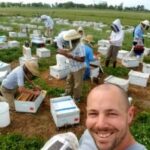
Dr. Brandon Hopkins
Assistant Research Professor, Washington State University
Research Lunch Keynote Speaker | Wednesday, Nov 18, Noon
Dr. Brandon Hopkins is an Assistant Research Professor at Washington State University in the Department of Entomology. Initially working on the development of cryopreservation of honey bee germplasm for breeding and conservation, work that enabled the establishment of the world’s first honey bee germplasm repository at WSU and inclusion of honey bee semen in the USDA National Animal Germplasm Program. Recent research efforts have been focused on developing practical solutions for the beekeeping industry ranging from bee breeding, nutrition and varroa control.
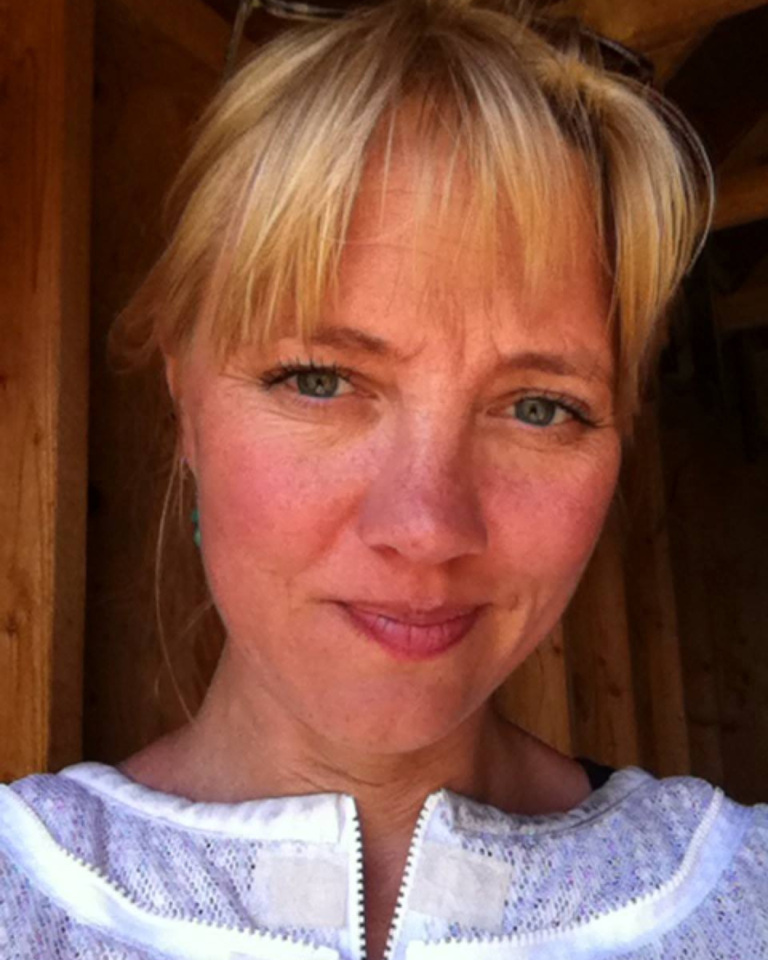
Danielle Downey
Executive Director, Project Apis m.
PAm Update on Colony Losses| Wednesday, Nov 18, 2:00 – 2:30 PM
Danielle was an entomologist by the time she was 5 years old, hunting bugs under rocks in South Dakota. She has been working with honey bees and the parasites that plague them for 30 years. Her background includes training and research from bee labs in Minnesota, Canada and France; beekeeper education, work with commercial beekeepers and queen breeders, regulatory work as a State Apiarist in Utah and Hawaii, and wrangling bees for TV and film.
Danielle works closely with the National Honey Board, Almond Board of California, Honey Bee Health Coalition, and collaborates with the Hilo Bee breeding project selecting and refining Varroa resistant bees.
Please direct any questions or feedback regarding Project Apis m. to: danielle@projectapism.org
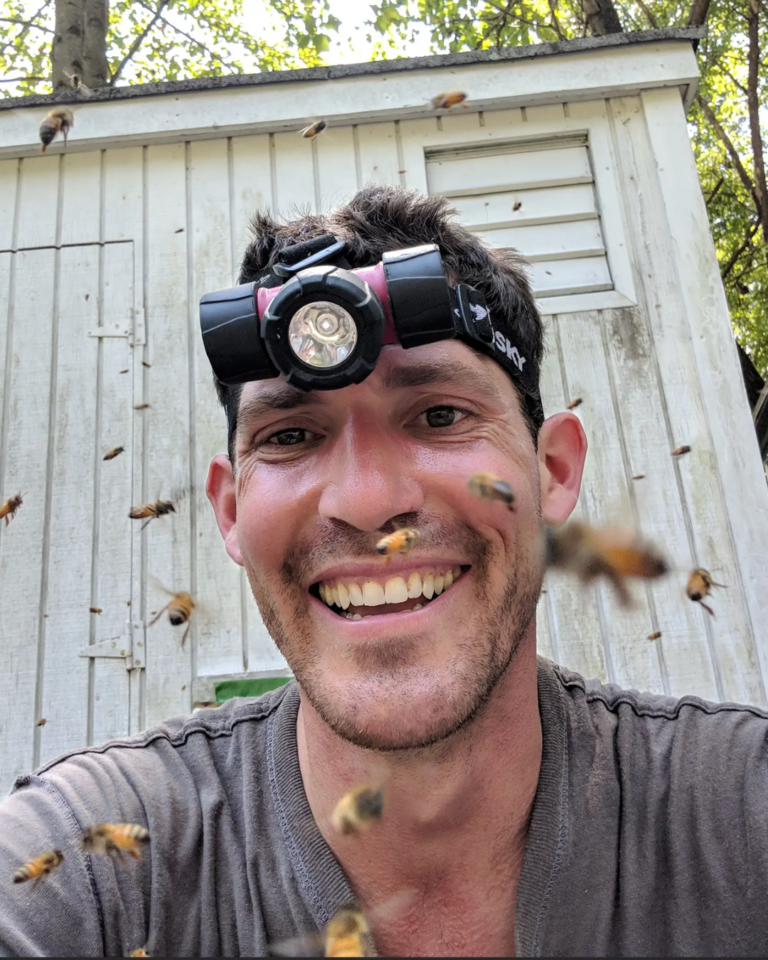
Zachary Lamas
Visiting Researcher, University of Maryland Baltimore County
Hazards in Dying Bees: What Can We Learn From Sampling at a Loss Event? | Wednesday, Nov 19, 2:30 – 3 PM
Zac Lamas runs the honey bee research laboratory at the University of Maryland Baltimore County. He focuses on hazards that cause colony loss, and then develops management solutions for those hazards. His previous work centered around the devastating effects of Varroa destructor, a parasitic mite which vectors viruses into honey bees. He uncovered that the ideal adult bee host for Varroa has been misidentified, and misunderstood for nearly 30 years. He is now using his previous findings and weaponizing that information against Varroa. During his PhD he was the recipient of the PAm-Costco award, and as a postdoc the NIFA postdoctoral fellowship. He actively speaks at bee clubs and professional conferences, largely sharing information on beekeeping management. Zac previously worked for Michael Palmer at French Hill Apiaries in Saint Albans, Vermont. On the side Zac is the owner and operator of RockStar Queens. He produces quality nucleus colonies and queens in central Maryland.
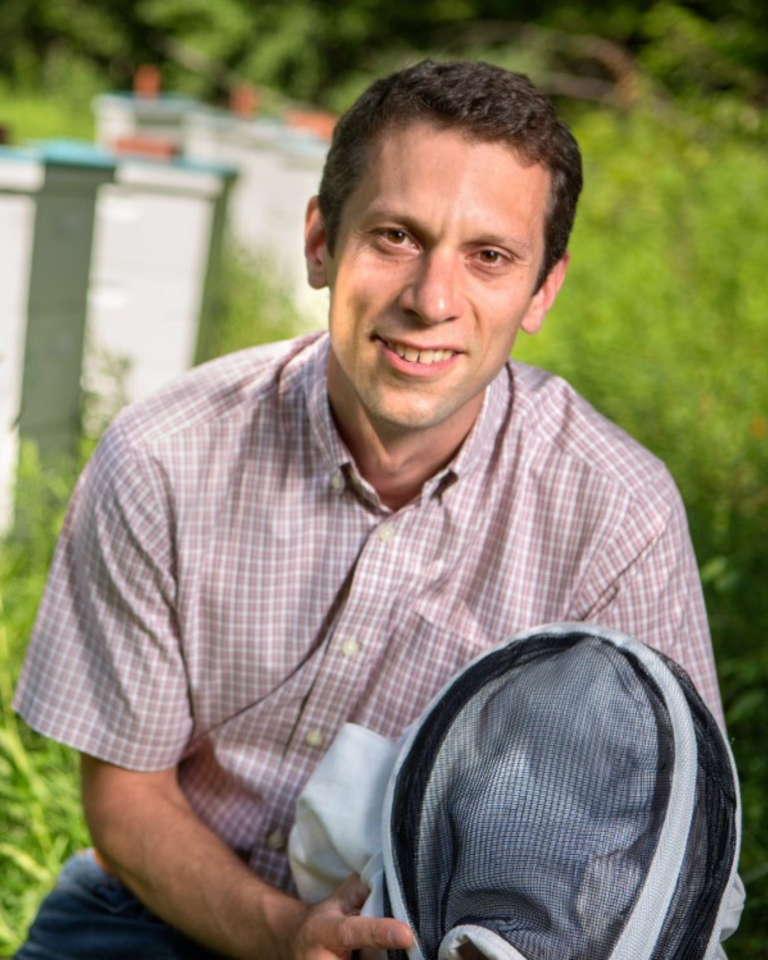
Dr. Scott McArt
Cornell University
Did Pesticide Exposure Play a Role in the Record 2024/25 Colony Losses? | Wednesday, Nov 19, 3 – 3:30 PM
Scott McArt is an associate professor of pollinator health in the Department of Entomology at Cornell University, where he oversees the Dyce Lab for Honey Bee Studies and the Cornell Chemical Ecology Core Facility. McArt earned his BA from Dartmouth College, his MS from the University of Alaska-Anchorage, and his PhD from Cornell University. He spent two years as a USDA postdoctoral fellow at the University of Massachusetts-Amherst prior to starting as a Research Scientist at Cornell in 2014. In 2017, he started as a tenure-track assistant professor. McArt’s main research interests are ecotoxicology and disease ecology. His lab is currently focused on understanding how pesticides, pathogens, and habitat impact the health of managed honey bees and native wild pollinators. He is keenly interested in working with stakeholders (beekeepers, farmers, regulatory agencies, and other members of the public) to do science that addresses real-world problems and improves pollinator conservation and health. This works well with his 60/40 research/extension appointment, which gives him the privilege of interacting with many passionate people. When not engaged in research, McArt enjoys trying to stay in running shape (often with his loyal dog, James), going on any flavor of outdoor adventure with his family, and amateur nature photography.
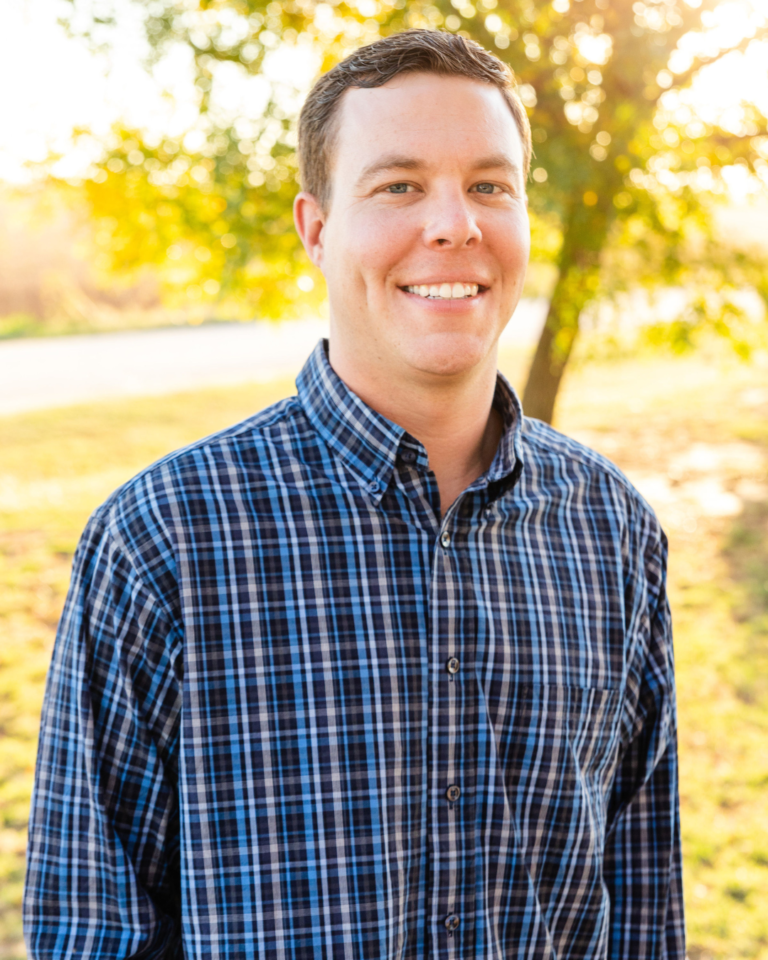
Mark Martens
Agri Placements International
H2A: Where It’s At and Where It’s Headed | Thursday, Nov 20, Member Breakfast Speaker
Mark is a Director at Agri Placements International, the nation’s leading expert in navigating the H-2A guest worker program. He also operates a family farm in northwest Oklahoma, producing wheat, sorghum, and cattle. Since joining Agri Placements in 2014, Mark has played a key role in its growth into the top H-2A filer in the country—providing farmers with reliable, cost-effective solutions to seasonal labor needs. Known for its deep experience, personalized service, and consistent results, Agri Placements helps agricultural employers of all sizes stay productive and compliant.
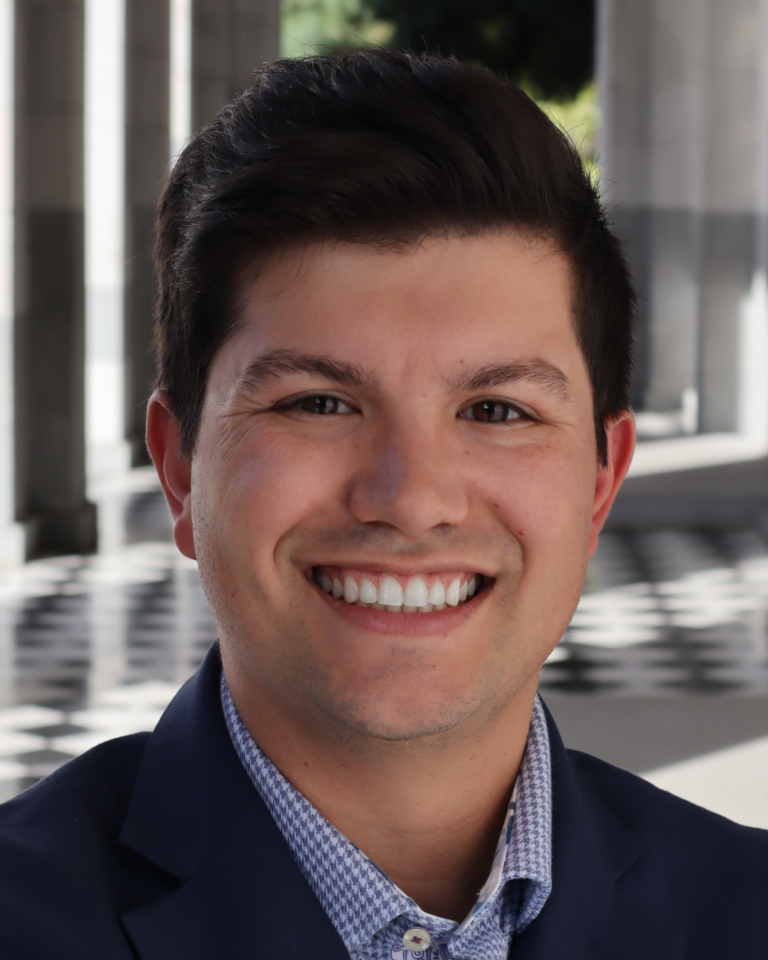
Nick Chiappe
California Trucking Association, Director of Government and Regulatory Affairs
Piecing Together CARB’s Emissions Strategy | Thursday, Nov 20, 11:00 – 11:30 AM
Nick Chiappe currently serves as the Director of Government & Regulatory Affairs at the California Trucking Association (CTA), where he is responsible for leading advocacy efforts, managing policy issues, and coordinating grassroots campaigns. He plays an integral role in advancing CTA’s goals by engaging with policymakers and regulatory bodies, and he is deeply involved in the association’s safety and environmental initiatives.
Prior to CTA, Nick gained significant experience in government affairs and advocacy through his work at the California Pharmacists Association, where he led a grassroots campaign to reform pharmacy reimbursements and increase access to life-saving medication for the most vulnerable communities.
Nick also spent time working at the California State Senate, where he served as a Legislative Aide and as a District Representative.
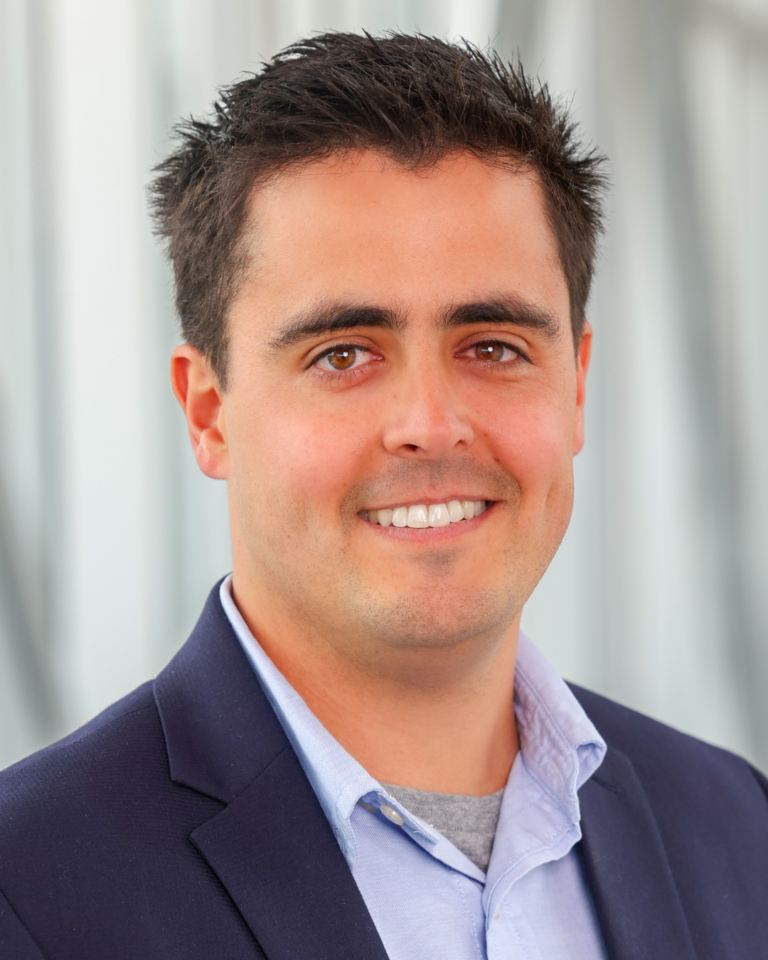
Matt Woolf, Ph.D.
Terrain / American AgCredit
State of California Farm Economy | Thursday, Nov 20, 11:30 – Noon
Matt Woolf, Ph.D., is Terrain’s specialty crop analyst, focusing on tree nuts, fruits and vegetables. As a part of the Terrain team of economists, he delivers expert analysis to the customers of AgCountry Farm Credit Services, American AgCredit, Farm Credit Services of America and Frontier Farm Credit.
Matt has an extensive academic, teaching and research background in economics. He earned bachelor’s degrees in political science and economics, a master’s degree in international and development economics, and a Ph.D. in economics from the Australian National University. He has experience in economic modeling, macroeconomic analysis, data science techniques and their applications in agriculture. With a research background in population dynamics, Matt took a leading role in the development of “The Big Shrink,” Terrain’s report series about future successful models for U.S. agriculture given changes in global population and demographics.
Matt is a native of California’s Central Valley, where his family grows almonds, pistachios and a variety of row crops.
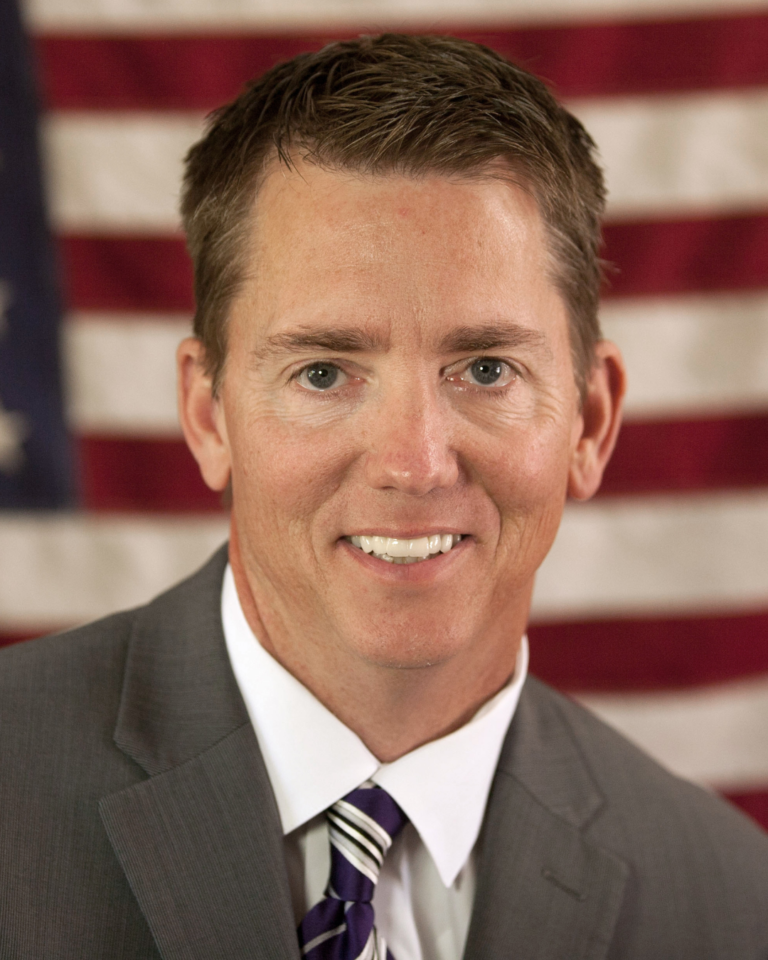
District Attorney Tim Ward
County of Tulare
Legislative Lunch Keynote Speaker | Thursday, Nov 20, Noon
Tim Ward joined the District Attorney’s office in 1999 as a Deputy District Attorney. Since joining the District Attorney’s Office, Tim has held numerous assignments varying from Felony Trial Division, Juvenile Division, and the Porterville Division. He has completed a number of special prosecution assignments where he prosecuted Agricultural Crime, Career Criminal, and Homicide cases.
In 2011, Tim was promoted to Assistant District Attorney and appointed by the Board of Supervisors to the position of District Attorney in 2021 following Phil Cline’s retirement. Tim was elected as District Attorney in 2014, 2018 and most recently in 2022.
Tim graduated from University of Tennessee with a Bachelor’s of Science in Education in 1988, served in the U.S. Army, and earned his Juris Doctor from Western State University College of Law in Fullerton, California. Tim serves on the Board of Directors for the CA District Attorney Association and the Legal Advisory Panel for College of the Sequoias.
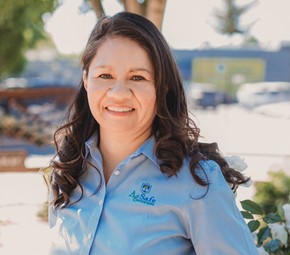
Angelina Ceja
VP and CEdO, AgSafe
Navigating Wages, Overtime and other Employee Challenges in California | Thursday, Nov 20, 2:00 – 2:30 PM
Angelina is the Vice President and Chief Education Officer at AgSafe a nonprofit organization based in Modesto, CA. AgSafe provides safety and human resources which include practical education to the agricultural community. She provides a variety of training, including equipment, worker safety, human resources and leadership development for supervisors, growers/owners, and labor contractors. She has helped develop and expand programs to address current issues and challenges facing the agricultural workforce.
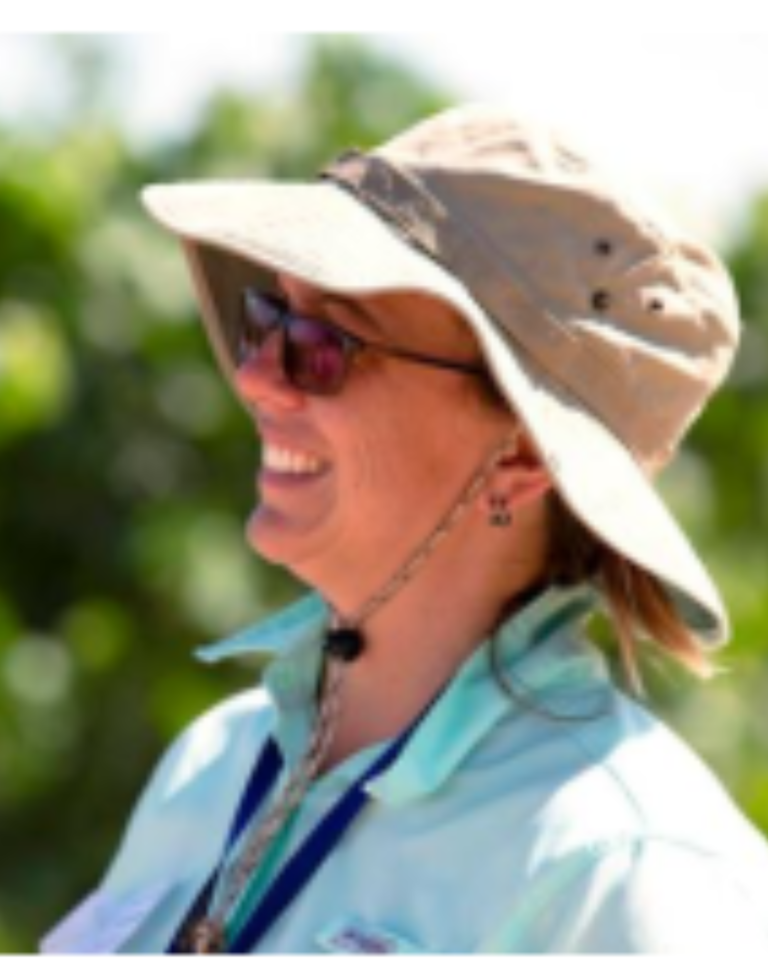
Kari Arnold
IR-4 Western Region
Introduction to IR-4: Facilitations of Regulatory Approval for Sustainable Pest Management Technology | Thursday, Nov 20, 2:30 – 3 PM
While working in landscaping, greenhouses and nurseries, Kari Arnold completed a Plant Science degree in Horticulture from the University of Nebraska, Lincoln. Later she moved to Sacramento and performed various grapevine virus assays at Foundation Plant Services (FPS), a department of the University of California, Davis. Later she accomplished a PhD in Plant Pathology from UC Davis. After graduating, she accepted a position as a Stanislaus County UCCE Farm Advisor. In late 2022 she accepted the position as IR-4 Western Region Associate Director. IR-4 facilitates regulatory approval of sustainable pest management technology for specialty crops and specialty uses to promote public well-being.
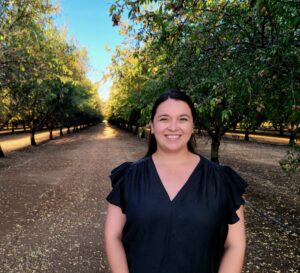
Lauren Fann
Manager, Pest Management Research, Almond Board of California
Almond Industry Update | Thursday, Nov 20, 3:00-3:30 PM
Lauren Fann, Ph.D., is Manager of the pest management research portfolio at the Almond Board of California (ABC), where she leads programs addressing insect, disease, and weed challenges across the state’s 7,600 growers and 99 processors. She manages research initiatives from design to implementation, including biopesticide trials, cross-commodity collaborations, and partnerships with the University of California and other experts to translate science into practical solutions. Lauren earned her Ph.D. in Entomology from the University of Kentucky, where her research focused on integrated pest management and invasive species. Passionate about bridging research and on-farm practices, she works closely with growers, pest control advisors, and agtech partners to tackle emerging challenges and strengthen sustainable production. She also contributes to ABC’s broader mission of supporting growers, improving farming practices, and advancing global demand for California almonds.
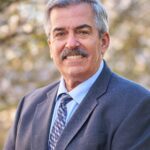
Mel Machado
VP Member Relations, Blue Diamond Growers
Almond Industry Update | Thursday, Nov 20, 3:30-4:00 PM
Mel oversees a team of nine regional managers who serve as direct support to the 3,000 grower-members of the Blue Diamond Grower cooperative.
Mel began his career at Blue Diamond in 1992, in the role of Field Supervisor serving member/growers in northern Stanislaus, and San Joaquin counties. He added the role of Special Projects Coordinator in 2011, taking on additional duties supporting the data management needs of the balance of the Field Staff, and providing management support for the Member Relations Division. In October of 2014 Mel was promoted to Director of Member Relations and joined the Executive Leadership Team. Mel was then promoted to Vice President of Member Relations in October of 2020.
Mel serves as a member of the Board of Directors of the Almond Board of California, ABC, and as a member of the ABC’s Strategic Agricultural Innovations Committee. He also serves as a member of the University of California Integrated Pest Management Advisory Council.
Mel holds an Associate of Science degree in Agronomy from Merced College, a Bachelor’s of Science Degree in Plant Science, concentrating in Vegetable Production & Plant Protection from California State University-Fresno and a Masters of Arts in Vocational Education from the Consortium of the California State University.
A native of Livingston, California, Mel grew up on a small Grade-B dairy and has worked in agriculture his entire life. Mel’s personal interests focus on flying and photography. He and his wife, Pam live on 19 acres in Oakdale, California, which he planted to almonds in 2019.
